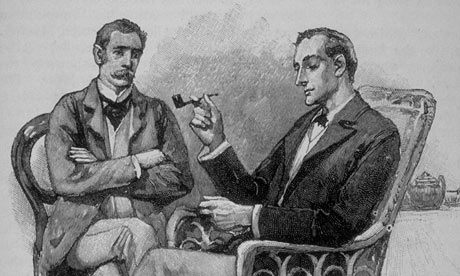5 Quotes You’ve Been Misquoting All This Time
Remember when you were a kid and your teacher advised you to begin or end an essay with a quote? Good quotes have this way of summarizing things in this pithy, witty way that can keep you guessing and second-guessing what the author who wrote the quote, or person who spoke it actually meant.
Interestingly, we often make widespread mistakes as to the origin of quotes. Here we are listing out five quotes that you’ve been misquoting (one way or another)!
“If they don’t have bread, let them eat cake.”
Remember hearing this when you were introduced to the French Revolution? Widely attributed to Marie Antoinette, the wife of King Louis XVI, the quote highlights the insensitivity of the aristocratic class. Marie Antoinette is rumoured to have said “Qu’ils mangent de la brioche“, which loosely translates into ‘Let them eat cake’ on hearing that the peasants in France had no bread to it during a famine.
However, Marie Antoinette is not the culprit of insensitivity here. The first records of the statement were attributed t ‘a great princess’ in Jean Jacques Rousseau’s Confessions– which was published when Marie Antoinette was only nine. In an alternate theory, the quote is attributed to Maria Theresa of Spain, who allegedly uttered the quote.
“Religion is opium of the masses”

This quote, which pops up ever-so-often after the religious unrest, is attributed to Karl Marx. While the attribution isn’t wrong, the context usually is. This quote is mostly used to express dissent against religion and fanatic religious practices. However, in the original context, Marx meant something quite different: “Religion is the sigh of the oppressed creature, the heart of a heartless world, and the soul of soulless conditions. It is the opium of the people”.
“I disapprove of what you say, but I will defend to the death your right to say it”

Next time some holier-than-thou intellectual appears next to you, adjusts his spectacles, and begins his tirade, ending with this quote and a snooty reference to ‘Voltaire’, you know how to cut him down to size. Tell him how he clearly has his fact wrong, because Voltaire may have said a lot of things- including Common sense is not so common – but he definitely did not say this. This line was actually written by Evelyn Beatrice Hall, in her book called The Friends of Voltaire– but has nothing to do with Voltaire himself.
“Elementary, my dear Watson”

Well, guess what, Sherlock, this quote has nothing to do with either Sherlock Holmes or Arthur Conan Doyle. This sequence of words actually has to do with another very famous British author: PG Wodehouse. In the famous novel, Psmith, Journalist, the exact dialogue was spoken by Psmith himself, and went, “Elementary, my dear Watson, elementary,” In every Sherlock Holmes’ fan’s defence, Sherlock Holmes did say something of the sort, near the beginning The Crooked Man, but the words do not appear in that order- and are in fact, punctuated by some dialogues by Watson himself.
“Those who mind don’t matter, and those who matter don’t mind.”

You’d think this cute quote would come out of Dr. Seuss, but as anyone who swears by Dr. Seuss would tell you, this quote has nothing to do with him. He may be the go-to person for capturing life in a nutshell, but the origin of this quote is a 1974 poem by George Ludcke, whose lines go:
Hostesses who fret about
Who sits where will find
That those who mind don’t matter
And those who matter don’t mind.




